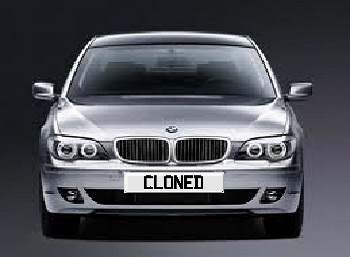Vehicle information expert HPI offers a set of four top tips to help car buyers spot potentially cloned cars.
HPI believes that used car buyers are more at risk of buying a cloned vehicle than ever before, as fraudsters develop more sophisticated methods to clone vehicles and pass them on to unsuspecting buyers. Car cloning is basically the automotive equivalent of identity fraud. It is used to give stolen cars new identities, copied from similar vehicles, to hide that fact that they are stolen.
Four simple tips published by HPI today can drastically reduce the chances of being fooled by the fraudsters into buying a stolen car:
Always check the history of the car, and make sure that you do so at the registered keeper's address as it is shown on the V5/logbook. Check that all of the VIN/chassis numbers on the car match each other. Services such as those provided by HPI can then also check that the numbers match with the details held by the DVLA.
If something seems too good to be true then it probably is. You should make sure that you are as fully aware as possible of a car's market value. This will not only help you to make sure that you don't pay too much, but it could also provide a warning if a vehicle is being sold off much too cheaply. Nobody likes to lose money on the sale of the car, so a very cheap price should raise suspicions.
Do not pay for a used car with large amounts of cash. If possible you should not pay in cash at all - use the banking system instead. Criminals will not want to take a payment that can be traced back to them, and will often walk away if you refuse to pay in cash.
Check the vehicle's V5/logbook carefully. Stolen V5 documents are sometimes used to accompany cloned vehicles. For additional security you can use the services of a company such as HPI to perform a stolen V5 document check.








